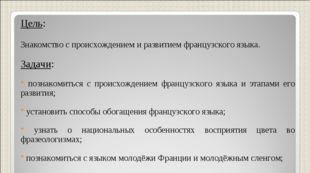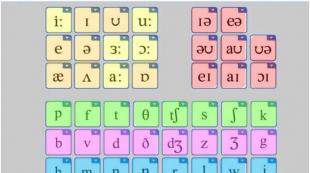How does an auditor work? Profession auditor Auditor what needs to be taken upon admission
Profession auditor
The auditor analyzes the financial activities of the enterprise, checks accounting and reporting. How to become an auditor, what responsibilities and income await you?
Auditor's Responsibilities
The auditor's responsibilities include:
- Travel to the place where inspection is needed
- Conduct an audit of documents and check financial and economic activities
- Advise employees on how to avoid penalties and improve their work
- Prepare necessary reports and conclusions
The auditor is often invited to the Arbitration Court to assist in the consideration of various financial cases. Therefore, a competent specialist must monitor all changes in legislation and legal documents.
Professional skills
The profession of an auditor involves meticulous work with numbers and documents. A good memory and strong nerves are important for this specialty.
The auditor must be responsible, attentive and principled. For fruitful work he needs:
- Deep economic knowledge
- Ability to correctly prepare financial documents and identify errors in them
- Ability to work with computer programs Word, Excel, 1C and Garant
- Knowledge of English
- Ability to maintain confidentiality.
A true professional must constantly improve his skills in order to be in demand in the labor market.
Where can an auditor make money?
There are several options to get on your feet, but the most common is to gain several years of experience in paid work. And then open your own business - an auditing firm.
From the point of view of first practical experience, after receiving an education you can get a job:
- to an audit company
- to a private company in the economic department
- to the tax service
That is, study in the civil service or in private companies.
In a private company, a specialist gives advice on organizing the activities of the enterprise and checks documents for errors.
The state representative tries to identify violations of the legality of transactions and determine the correctness of the taxes charged.

Auditor's work
So, after a while you will gain experience and a potential client base. The next logical step is to work for yourself.
You open a private company and begin to acquire clients and customers.
The auditor does not prepare financial statements; he points out errors. Therefore, the private audit business is good to combine with the accounting direction, so think in advance about developing and hiring accountants for your company. You definitely can’t handle all the work alone.
Pros and cons of the profession
The advantages include the high earnings of specialists and the great demand for them.
There are many more disadvantages:
- This is the responsibility of the auditor, which implies the absence of the right to make a mistake and miss a violation.
- Permanent business trips
- Frequent changes in legislation that need to be closely monitored
- Large amount of work
- Difficulty getting a job without relevant experience
Despite the disadvantages and responsibility, this work is very interesting and prestigious. If you thoroughly study the profession, you can open a private office and advise people and businesses, check their statements and give valuable advice.
How to become an auditor
You must have a higher education from the economics department of a university, majoring in finance and credit. In Russia there are such establishments in almost every city. Select the nearest university and feel free to submit your documents.
It is not a fact that during your studies you will learn all the intricacies of how to become an auditor. Therefore, you will have to study a lot on your own, and perhaps take additional courses.
To start working, you need to obtain a certificate issued by the Moscow Audit Chamber. Without it, a university graduate can only work as an assistant auditor.
Every few years, you will be required to attend refresher courses to ensure you are aware of all the new job opportunities that have become available.

How to become an auditor
Auditor's income
If we talk about the first step, gaining experience in hired work, then the situation here is as follows:
- The minimum income of an auditor without work experience is 20 thousand rubles. With advanced training, the salary increases and over time can reach 90 thousand rubles.
- How much an auditor earns in private companies is easy to predict. A valued professional can receive fabulous sums of up to 1,500,000 rubles.
If you have already switched to working for yourself, everything is simpler here. Your income depends on you, your clients and the price tag for audit services.
The cost of audit services depends on the company’s tax system, the number of employees and accountants, the region and the presence of a branch network, the number of suppliers and clients, the volume of documentation for the period, the need to issue an official audit report or informal recommendations, and many other factors.
For example, an annual audit in the Tver, Kostroma, Vladimir and other regions, when the client is a company of about 50 people, without branches, with an acceptable quality of accounting and primary documentation, will cost about 130 thousand rubles. From here, expenses for salaries, rent, etc. will be deducted.
Well, and the number of clients.
On average, for experienced private audit firms with a high price tag, net income starts from several hundred thousand rubles per month.
For many of us, career growth is the key to success in life. As you know, everyone has their own boundaries of professional excellence. What are the prospects for an accountant? In this article we will tell you how an accountant can become an auditor, and what are the pros and cons of the “new status”.
Many practicing accountants with 5–7 years of experience are thinking about changing their profession. A chief accountant who is interested in career growth can become a financial analyst, auditor, or tax consultant. The basis for this choice is the absence of the need to keep records every day, go to the tax office to submit reports, undergo reconciliations, perform routine operations to prepare primary documentation, generate reports, etc. Let’s focus on the profession of an auditor.
Auditor – calling or punishment?
An auditor is an interesting and well-paid profession, but not everyone can become one. And not only because there are high requirements for candidates to obtain the qualification certificate necessary for auditing activities. A specialist who decides to become an auditor must have a large amount of knowledge in various areas of accounting, tax and civil law.
The auditor's work is seasonal. As a rule, the main burden of inspections falls on the period from November to April. At the end of each inspection, it is necessary to draw up a report and issue a conclusion to the client. It is also necessary to fill out a number of documents provided for by internal company standards. Sometimes the auditor writes reports at home late at night. Therefore, the choice of profession is determined not only by its status, but also by the personal characteristics of the specialist.
Mandatory requirements for applicants
Auditing activities in the Russian Federation are carried out in accordance with the Federal Law of August 7, 2001 No. 119-FZ “On Auditing Activities”.
Mandatory requirements for applicants for obtaining a qualification certificate of an auditor are the presence of a document on higher economic and (or) legal education received in Russian institutions of higher professional education that have state accreditation. The applicant may also have a document confirming a higher economic and (or) legal education received at an educational institution in a foreign country. In this case, you will have to present a certificate of equivalence of the specified document to a Russian state document on higher economic and (or) legal education.
Another mandatory condition is having work experience in an economic or legal specialty for at least three years out of the last five.
Procedure for certification
Certification is carried out to check the qualifications of individuals wishing to engage in auditing activities. The audit takes the form of a qualification exam, following which the following types of auditor qualification certificates are issued:
– in the field of general audit;
– in the field of audit of exchanges, extra-budgetary funds and investment institutions;
– in the field of audit of insurance organizations and mutual insurance companies (audit of insurers);
– in the field of audit of credit institutions, banking groups and bank holding companies (bank audit).
Persons who successfully pass the qualification exam are issued an auditor qualification certificate of the appropriate type with no expiration date.
Applicants for obtaining a qualification certificate of an auditor submit a certain list of documents to the Ministry of Finance of the Russian Federation through educational and methodological centers (UMCs). One of the required documents is a copy of the certificate of assignment of a TIN to an individual. If for some reason you did not receive it, hurry up.
There is a list of training and methodological centers with which the Ministry of Finance has entered into agreements for certification and advanced training of auditors (as of June 1, 2007). Classes in these centers are conducted according to the program approved by the Ministry of Finance of Russia. In any case, preference should be given to well-known training centers that have proven themselves in the educational market.
How is the exam going?
Exams consist of testing and written and oral work. The formation of examination sets of tickets and tests is carried out centrally by sampling from a database generated and approved by the Ministry of Finance of the Russian Federation. Applicants are admitted to qualifying exams upon presentation of a passport or other document proving their identity. Applicants who do not have such documents with them or are late for the exams are considered to have failed to appear for the exam.
You will have to pay 2,000 rubles separately to pass the exam. Please note that if the certification results are unsatisfactory, this amount will not be returned to the applicant. The conditions for recruiting groups and completing training can be found in Table 1.
We improve our qualifications
An auditor who has an auditor's qualification certificate is required to undergo training in a professional development program for auditors during each calendar year, starting from the year following the year of receipt of the certificate. This program is approved by the Ministry of Finance of the Russian Federation in the amount of at least 40 academic hours per year.
The advanced training course can be taken at the same training center where you took training before the qualification certificate exam. The cost of the course ranges from 4500 to 8400 rubles. Upon completion of the advanced training course, a certificate is issued to renew the certificate.
After successfully passing the exam and receiving a certificate, you can apply for the position of auditor. The average salary for a beginner specialist with no inspection experience is 35,000 - 45,000 rubles. With at least a year of experience as an auditor and a certificate of advanced training, the salary range increases significantly - 55,000 - 75,000 rubles. However, the salary of an experienced chief accountant is in the same range. Note that combining the work of an auditor and a chief accountant is impractical and practically impossible.
You need to decide in which field of activity you are most interested in working and make your choice.
A. Demenko, leading tax consultant of the RUSCONSALT Group of Companies
According to statistical studies of 2012-2017, the audit profession was included in the top ten popular and prestigious specialties. It is obtained in specialized educational institutions, and basic qualifications are improved through courses. Young people are attracted not only by the stability and salary of an auditor, but also by career opportunities. People who are going to get the necessary education should study the specifics of the field in advance. In Russia, to engage in auditing, it is not enough to graduate from a relevant university; you also need to obtain a qualification certificate and join a special organization.
Auditors are specialists who audit the tax and financial documentation of an organization or conduct consulting activities.
In the case where the auditor conducts consulting activities, their responsibilities include adjusting the accounting records of the enterprise in order to minimize its costs and eliminate violations of the law. Auditors are government auditors - they check the legality of the activities of the reporting company; and private – work in the interests of the organization being audited.
The main responsibilities of the auditor (may vary depending on the place of work):
- carrying out an inspection at the enterprise, drawing up a report on its results;
- assessing the correctness of reporting in the company and filling out documentation;
- conducting training for individual employees in order to improve the efficiency of financial and economic activities and establish internal control systems;
- audit of the safety and legality of planned financial transactions;
- providing assistance to the top management of the enterprise in the area of establishing financial issues;
- The auditor must monitor changes in legislation and constantly improve the level of his qualifications to efficiently perform the above tasks.

From a practical point of view, the employee's responsibilities include visiting the company that is subject to inspection and assessment, or its branch. Accounting books, financial and some legal documents on paper and electronic media are reviewed on site. The modern specifics of enterprises require auditors to be able to handle different types of software.
Requirements for an employee
The profession of an auditor is equally common among women and men of different ages. People who are competent, honest, objective and attentive, cold-blooded, and capable of performing monotonous work for a long time have a greater chance of success. They should not be afraid of further study in their chosen field. A good auditor never stops receiving education to improve his skills.
Professionally, an auditor needs to:
- have a higher economic education;
- understand methods of conducting audits according to international standards;
- have knowledge in the field of tax, management and accounting, the regulatory framework in these areas;
- know the rules and specifics of drawing up financial documentation;
- identify unintentional errors and deliberate violations in the conduct of business at an enterprise in their professional field, and be able to distinguish them from each other;
- possess skills in working in various accounting and auditing programs, confidently use a computer.

The peculiarities of the profession are such that special requirements are often placed on applicants. Some firms do not hire employees over 45, citing a decline in attention after this milestone. Often, even those companies that operate only on the Russian market expect employees to have a high level of English language skills. If the auditor will have to travel regularly on business trips, attention will also be paid to the family status of the applicant. Preference is given to single people.
Advantages and disadvantages of the direction
When planning to get an education in the auditing field, it is recommended to consider its pros and cons. The direction has only two advantages, but they are significant. Firstly, there is a demand for specialists. The economic development of the country and the whole world leads to the fact that even novice specialists in this field quickly get jobs after graduation. The second advantage of the profession is high earnings and a number of career development opportunities.
Negative aspects of working as an auditor:
- performing routine and monotonous manipulations year after year;
- lack of a clear schedule, irregular working hours;
- constant stress, the need to experience the negative attitude of others;
- an exorbitant degree of responsibility and no room for error;
- high requirements for the quality of performance of assigned tasks and serious sanctions for negligence;
- the need to constantly improve knowledge, pass qualification tests, and monitor changes in the professional field.
Young employees at the initial stage of their careers are engaged in accounting at enterprises and act as assistants to experienced specialists. To become a full-fledged auditor, they must work for at least three years in this field, of which at least two years in an audit company. Only after passing the qualification exam do they receive a certificate and can begin independent work in their specialty.

How to become an auditor?
When deciding where to study to become an auditor, you should evaluate your abilities, goals and plans for the future.
Training in this field takes from 3.5 to 5.5 years. Based on its results, the student is assigned a qualification level: bachelor, specialist, master. The average salary of an employee and career prospects depend on this indicator.
Audit is taught in many universities, here are the most prestigious of them:
- MFUA;
- Moscow Humanitarian and Economic University;
- High School of Economics;
- REU im. G.V. Plekhanov;
- MGIMO;
- MSTU im. N.E. Bauman.
Each university has its own list of Unified State Exam disciplines and their indicators. Most often, results in mathematics, Russian language, and social studies are important. Sometimes high scores in a foreign language, computer science, or physics are required. Depending on the characteristics of the educational institution, the description of educational programs changes. Today, universities are increasingly offering their best students the opportunity to study abroad.
Salaries in auditing
At the initial stage, the auditor’s salary is 20–30 thousand rubles per month. After receiving a qualification certificate, the specialist’s scope of activity expands, and he can count on increasing the numbers to 40 - 50 thousand rubles. Depending on the employee’s workload, this figure can increase two or even three times. If you regularly pass qualification tests, this will ensure that you climb the career ladder - from an ordinary employee to a senior employee, and then the head of the audit committee. In this case, the salary level rises to 1 - 1.5 million rubles, subject to cooperation with large companies.

Auditors who understand that their studies do not end when they leave the university are able to achieve not just financial stability, but material well-being. True, for this you need to work hard, develop and constantly strive for professional growth.
What achievement in the work world can every accountant boast of? Of course, these are successful reports, agreements in estimates, etc. But the most important thing is the promotion. An auditor in our country is an accountant who has the highest qualifications. That’s why many aspiring accountants and university graduates are so interested in how to become an auditor.
There are several options for becoming an auditor. You are likely to be interested in all of them if you are gradually moving towards this goal. Well, let's find out in detail not only how to become an auditor, but also try to understand what kind of profession this is and under what conditions it takes place in the modern world of economics.
If you want to know how to become an auditor, first find out what kind of specialty it is. An auditor is a person who performs audits and provides advice aimed at restoring the accounting records of individuals and legal entities, as well as organizations. An audit, in order to fully understand the activities of the auditor, is the carrying out of an audit (verification) of reports, documents and various books of accounting.
Separately, it would be worth highlighting a certified auditor. This is a financial accounting specialist who has passed the necessary certification of his knowledge and skills.
What else can the term “auditor” mean:
1. Military lawyer-secretary. Such auditors existed in ancient Russia (even before the revolution), they worked within military courts and essentially played the role of prosecutors;
2. Outside our country, entire law firms engaged in accounting matters are also called auditors;
3. In Russia in the 17th and 18th centuries, auditors were students (pupils) who listened to other students (pupils) tell prepared lessons and gave a grade for this at their own discretion (based on the preparedness of their classmates);
4. Since 1994, the Auditor magazine, which is extremely popular to this day, has appeared in Russia.
Auditor's work.
The activities of an auditor in Russia must necessarily comply with the legislation of our country:
1. An auditor can be an individual who fully meets all the requirements for the “Auditor” qualification;
2. Qualification requirements for an auditor are established by the federal body authorized in this matter and having an auditor certificate;
3. An auditor can work as an individual entrepreneur or as a representative of an audit firm. One way or another, individual entrepreneur or organization, they must undergo licensing for the right to conduct this activity;
4. Auditors do not have the right to engage in business in other areas;
5. The Federal Law “On Auditing Activities” should serve as the “legal guidance for the auditor”;
6. To certify an auditor, he must constantly take qualification courses (advanced training);
7. Auditors can be public or private.
You're probably eager to learn how to become an auditor. Then let's get started, you need to contact the Ministry of Finance of the Russian Federation and prepare:
1. Application for certification;
2. It is necessary to have a document, certified by the public, about a higher economic or legal education, which must be obtained at any Russian university (with state accreditation - this is extremely important);
3. If you graduated from a university in another state and received an economic or legal education, provide documents about this. But you will also have to provide a document that would state that the foreign diploma corresponds to which Russian document;
4. It is mandatory to obtain work experience in the economic or legal field (according to your specialty) for 3 years out of the last 5 years. It is necessary to provide an extract from the work record book, certified by a notary;
5. Provide a copy of the TIN certificate;
6. Take also an official certificate from your place of work;
7. Make a copy of the “main” page of the passport with your personal data;
8. It is necessary to pay for certification and provide a copy of the document confirming this.
To become an auditor, you must pass certification, which is carried out as an exam (qualification). Based on this exam, or rather its positive result, you will receive a certificate. The auditor's certification may vary by area and be:
1. General audit,
2. Audit of insurers;
3. Banking audit;
4. Investment audit (exchanges, investment institutions, extra-budgetary funds).
The main thing is that the certificate does not have an expiration date.
The exam takes place in three stages:
The first is testing;
The second is an exam on knowledge of such sections as Finance, Taxes and Law;
The third is the exam in Accounting and Auditing.
All exams are conducted in written and oral form.
If you want to become a CPA, you will have to go to the United States and take the exam at the American Institute of Certified Public Accountants. This exam is divided into 4 stages:
– Audit exam;
– Finance exam;
– exam in Law and Taxes;
– Business Environment exam.
Dear readers, you will probably like our article ““. Read it, it contains a lot of useful information.
Auditor- a specialist involved in auditing (verification of documents, financial and tax reporting) and consulting activities related to the adjustment of accounting. The profession is suitable for those who are interested in economics (see choosing a profession based on interest in school subjects).
According to the legislation of the Russian Federation (Federal Law of December 30, 2008 No. 307-FZ “On Auditing Activities”), the auditor (from Lat. auditor listener) - an individual who has received a qualification certificate as an auditor and is a member of one of the self-regulatory organizations of auditors. The auditor profession is labor-intensive, complex and at the same time interesting. It requires constant professional development and possession of a large amount of information. But at the same time, this profession is traditionally one of the most paid and prestigious.
There are private and public auditors. The former work in the interests of the company being audited. They, as a rule, check financial statements for errors and inconsistencies and give advice. An auditor in the public service checks the accounting and tax reporting of an organization for the legality of transactions, the absence of fraud in the preparation of contracts and the provision of reports, and the legality of income and expense channels. The main goals of conducting a tax audit are to determine the correctness of calculation of the amount of taxes payable and to prevent possible claims and penalties associated with violation of tax laws.
Audit can be both internal and external. Internal is typical for large organizations with branches. External - for small companies that attract specialists from audit firms.
Auditor's responsibilities:
- field visit to a company where it is necessary to conduct an audit;
- checking the financial and economic activities of the organization;
- audit of accounting documents, books, reports;
- making a conclusion, drawing up a report on the work done;
- consultation on issues of setting up accounting, financial and tax reporting.
Required professional skills and knowledge
- knowledge in the field of economics, finance;
- impeccable knowledge of financial legislation;
- knowledge of the features of drawing up financial documentation;
- ability to identify errors and violations (be able to distinguish intentional from unintentional errors);
- ability to quickly understand the production process of the company being audited;
- knowledge of a foreign language (for working in a prestigious company);
- knowledge of Word, Excel, as well as skills in working with 1C, Garant or Consultant Plus.
Also in accordance with the Code of Ethics for Auditors dated May 31, 2007. The basic principles of conduct for auditors include:
- honesty;
- objectivity;
- professional competence;
- due care;
- confidentiality and professional behavior.
Auditor training
To become a professional auditor, you must complete special courses, as well as regularly take advanced training courses.
In this course, you can obtain the profession of an auditor remotely in 3-6 months. Diploma of professional retraining established by the state. Training in a completely distance learning format. The largest educational institution of additional professional education. education in Russia.
Personal qualities
- responsibility;
- attentiveness;
- accuracy;
- integrity;
- mobility;
- communication skills;
- flexibility;
- attention to detail and numbers;
- Analytical mind;
- good memory;
- stability of attention, emotional-volitional stability.
Cons of the profession
- frequent business trips;
- irregular working hours;
- Difficult job placement without work experience;
- the need to process large amounts of information in a short time;
- no room for error (if a violation is missed and then discovered during a tax audit, the audited company will pay a fine and the audit firm will lose its reputation);
- vagueness and frequent adjustments of laws and legal documents.
Pros of the profession
- stable demand for professional auditors;
- high salaries for auditors.
Place of work
- audit companies;
- state tax service;
- financial and economic divisions of various companies.
Salary and career
Salary as of November 20, 2019
Russia 35000—135000 ₽
Moscow 40000—120000 ₽
Auditing activities are permitted by the presence of an auditor qualification certificate issued by the Moscow Audit Chamber. According to the law, in order to obtain it the following requirements must be met:
- the applicant has passed the qualifying exam;
- by the day the results of the qualification exam are announced, the applicant has at least three years of work experience related to auditing activities or maintaining accounting records and preparing accounting (financial) statements, while at least two of the last three years of the specified work experience must be working in audit organization;
- no more than one year has passed from the date the Unified Certification Commission made the decision on the applicant to pass the qualification exam until the day the Moscow Audit Chamber received the application for a certificate from the applicant.
In small Russian companies, the salary and career growth of an internal auditor depend on the size of the company and range from 40,000 to 60,000 rubles, in a large company up to 1,500,000 rubles.
Possible vertical career development options for an auditor: auditor, senior auditor, audit manager. Horizontal movement looks like a transition from Russian audit firms to international ones or a transition to non-audit firms to the position of internal auditor.









